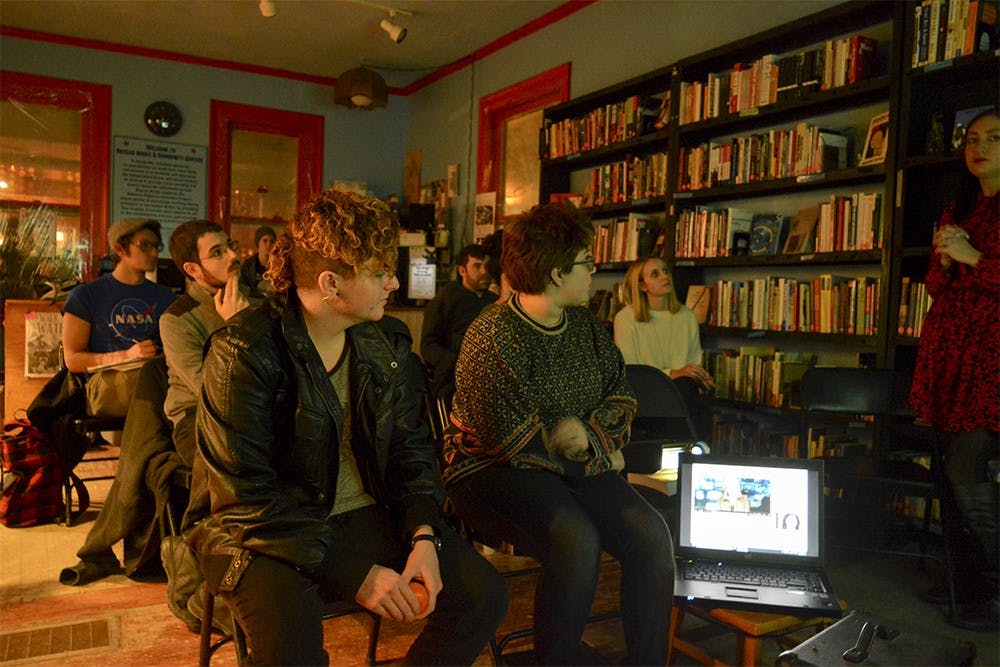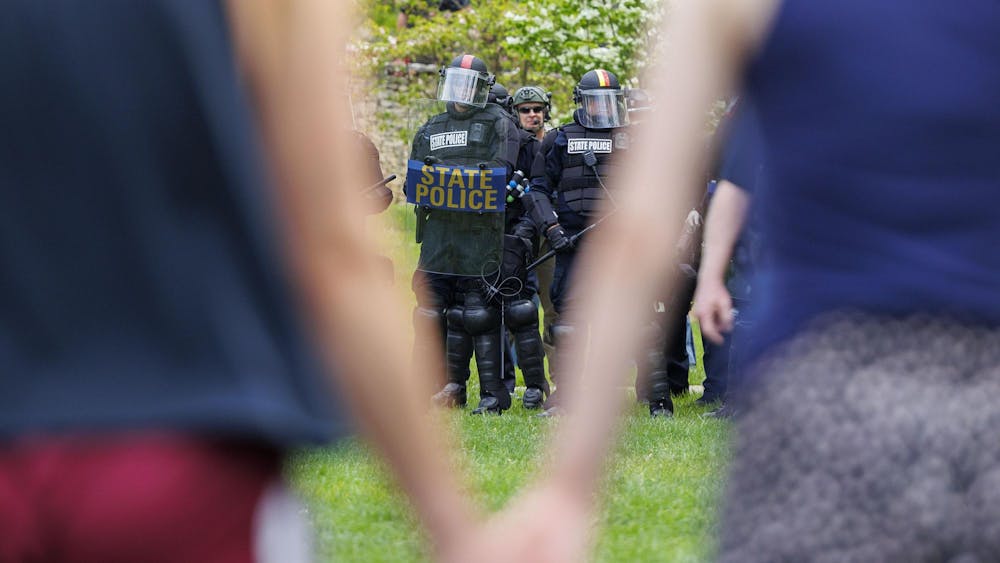The controversial and historic Obergefell v. Hodges supreme court decision regarding gay marriage occurred June 26, 2015. While this was a major victory for many in the LGBT community, some students from the LGBT Research Project and Outlaw think there are many more problems to fix.
“I like to be a little more optimistic as the Obergefell decision was based on supporting basic human dignity far more than it was on any constitutional precedent,” Richard Benson, LGBT Research Foundation member, said. “I think it might actually be good going forward for the LGBT community if the courts are starting to recognize basic fundamental dignity as being worthy of protecting.”
The Access to Justice and Public Interest Law Foundation paired with LGBT Research Project and Outlaw on Thursday night in Boxcar Books to discuss the controversial Senate Bill 35. The students from LGBT Research Project and Outlaw are from the Maurer School of Law.
Senate Bill 35 aims to control the use of public restroom facilities to the designated biological gender labeled on the door, according to the Indiana General Assembly website.
“It will be becoming more prominent throughout the country, making people limit their bathroom choices to biological gender, which doesn’t make any sense because gender is not biological,” Kristin Riebsomer, LGBT Research Project and Outlaw member, said.
Riebsomer said this event is targeted at facilitating discussion about the topic, not necessarily a lecture.
This discussion was part of a series called Social Justice Thursdays and was the first of the semester.
The event also spoke of broader LGBT rights and issues within. Senate Bill 35 was the primary discussion point, though.
“A lot of this is geared toward youth,” Ash Kulak, LGBT Research Foundation member said. “For schools it’s based on chromosomes and assigned sex at birth. It’s criminalizing intersex and trans people.”
At the meeting a video was shown about CeCe McDonald.
McDonald is a trans woman who was assaulted in an allegedly transphobic attack on her way to the grocery store with friends. In the struggle CeCe fatally stabbed one of the attackers and was found guilty of second-degree manslaughter.
McDonald was sent to a men’s prison after taking a plea deal for 41 months instead of risking a near-lifetime for pleading innocent, according to the video. McDonald is now free after serving 19 months in prison for good behavior, but she remains a felon.
The speakers used this video as a point of conversation. The discussion transferred from person to person within the audience.
“The best thing to do is genderless bathrooms, in my opinion,” Riebsomer said.
The bill also makes it a class A misdemeanor criminal offense to enter the incorrect gender-assigned bathroom, according to the Indiana General Assembly website.
“The bill, at least the way I read it, defines biological sex based on chromosomes, which would make it impossible to change because you can’t change your genome,” Benson said.
The controversial bill would scientifically designate transgender people in an indisputable way, according to the Indiana General Assembly website.
“It doesn’t seem like it would really be possible for people to really check your chromosomes at the door,” Kulak said. “The bill is definitely designed to target people who are visibly trans.”






